Bitter Pill: The rise and fall of Manitoba’s Internet pharmacy pioneers
(PART 1)
Advertisement
Read this article for free:
or
Already have an account? Log in here »
To continue reading, please subscribe:
Monthly Digital Subscription
$0 for the first 4 weeks*
- Enjoy unlimited reading on winnipegfreepress.com
- Read the E-Edition, our digital replica newspaper
- Access News Break, our award-winning app
- Play interactive puzzles
*No charge for 4 weeks then price increases to the regular rate of $19.00 plus GST every four weeks. Offer available to new and qualified returning subscribers only. Cancel any time.
Monthly Digital Subscription
$4.75/week*
- Enjoy unlimited reading on winnipegfreepress.com
- Read the E-Edition, our digital replica newspaper
- Access News Break, our award-winning app
- Play interactive puzzles
*Billed as $19 plus GST every four weeks. Cancel any time.
To continue reading, please subscribe:
Add Free Press access to your Brandon Sun subscription for only an additional
$1 for the first 4 weeks*
*Your next subscription payment will increase by $1.00 and you will be charged $16.99 plus GST for four weeks. After four weeks, your payment will increase to $23.99 plus GST every four weeks.
Read unlimited articles for free today:
or
Already have an account? Log in here »
Hey there, time traveller!
This article was published 30/03/2013 (4644 days ago), so information in it may no longer be current.
The story is like folklore now.
A kid recently graduated from the University of Manitoba with a pharmacy degree in his back pocket had set out on a dream to own a small-town pharmacy. He did the market research, got a loan from his dad, and he and his new bride opened a shop in Minnedosa, on the Yellowhead Highway, 203 kilometres northwest of Winnipeg. Andrew Strempler was just 25 at the time, the youngest pharmacy owner in Manitoba.
Only he forgot one thing. While his market research showed Minnedosa could support a second establishment, he didn’t take into account that allegiances for the existing pharmacy ran deep — generations deep. No one was switching from the one their family had patronized since almost settlement days for some upstart from Winnipeg.
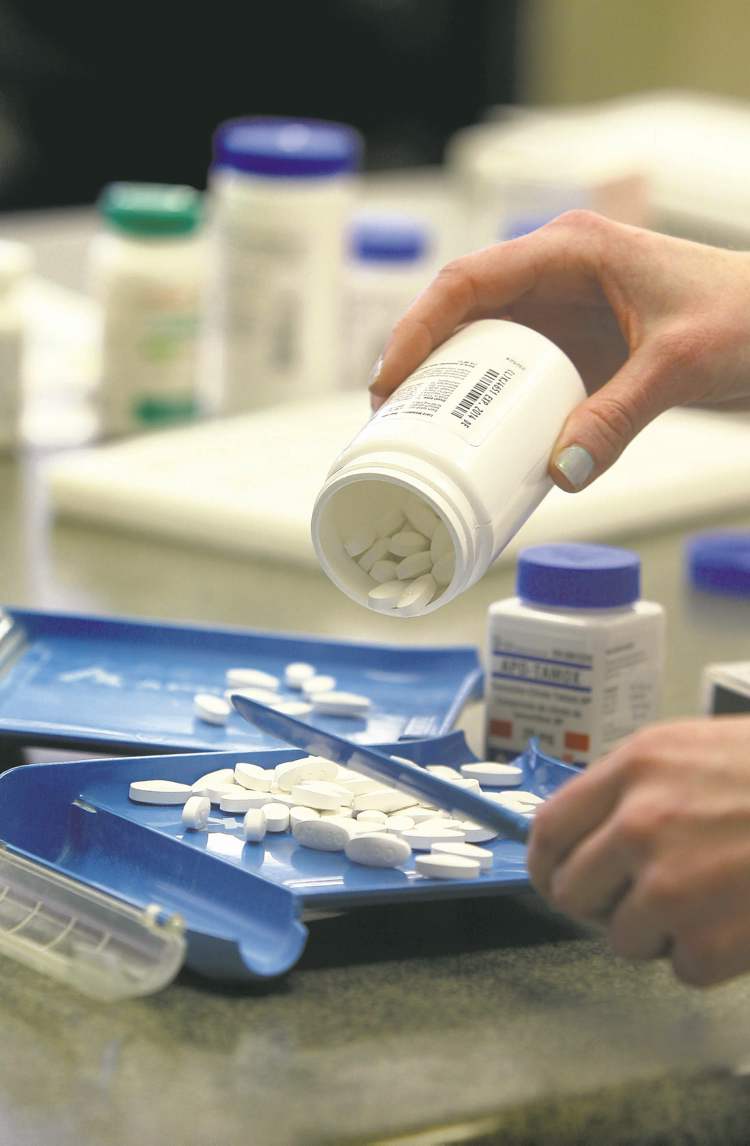
So Strempler sat in the window of his empty store, passing the time by surfing the Internet, straightening and re-straightening the cold medicines and antiperspirants on his shelves, and watching passersby pass by to the other pharmacy two blocks down. The monotony was only broken by the daily phone calls from wholesalers demanding payment.
Then, out of the crushing ennui, a light bulb. After all, a box of 105 pieces of Nicorette gum in Canada at the time cost $20 (US), versus $55 across the border. So he listed a pack on eBay just to see what would happen. It sold in seconds, not minutes. So he did it again. And again. Soon, he was showing up at Costco in Winnipeg and literally buying their entire stock.
With the arrival of the new millennium as the backdrop, the Internet pharmacy was born.
Initially, he set up a website just for Nicorette gum for cigarette addicts. But why stop there? Strempler’s MediPlan Pharmacy soon began advertising limited brands of prescription drugs under domain name RxNorth.com.
Business soared. The markup pharmaceutical companies charged in the U.S. was astronomical versus Canada. It helped that the Canadian loonie dipped into the 62-cent range versus the American greenback. But in the early years, Canadian Internet pharmacies were selling prescription drugs to American patients at an average of 20 per cent of U.S. retail prices. (Even though the Canadian dollar hovers around par today, Internet pharmacies are still able to sell drugs on average for about half the retail price in the U.S. For example, Viagra sells for $25 a pill in the U.S., versus $11to $12 that licensed Internet pharmacies charge.)
Strempler quickly realized he couldn’t handle all the business himself and reached out to former pharmacy classmate, Mark Rzepka. Rzepka, who was even younger than Strempler, grew up in East Kildonan and had been the school president at Miles Macdonell Collegiate. In the University of Manitoba’s faculty of pharmacy, Strempler struggled until Rzepka became his “study buddy” and helped get him through. Strempler now approached Rzepka with an offer: for $100,000, he could become a partner in Strempler’s MediPlan Pharmacy.
Rzepka was working in a tiny, hole-in-the-wall pharmacy in a Balmoral Street strip mall near the University of Winnipeg. The owner of the pharmacy was none other than Kris Thorkelson, who would go on to become the biggest Internet pharmacist in Canada. Thorkelson knew nothing about Internet pharmacy back then. Thorkelson’s friend and former partner was Daren Jorgenson, another pioneer who would set up the first Internet pharmacies in Tel Aviv and London. Jorgenson had started to dabble in selling prescription drugs online. When he heard about the Strempler offer, he told Rzepka it could be a good investment.
That was the genesis. Those three Internet pharmacy kings, Strempler, Jorgenson, and Thorkelson, would go on to rock the pharmaceutical world and become a catalyst to health-care reform in the U.S. They would make life-saving medications more affordable for countless Americans who didn’t have private health-care plans. They turned Manitoba into the industry’s epicentre, creating thousands of jobs and tens of millions of dollars in economic spinoffs. They also became fabulously rich.
Today, Strempler is in a Miami jail serving a four-year prison sentence, Jorgenson got out the industry just in time, and Thorkelson is being investigated in connection with counterfeit drugs in the U.S. Some in the industry think it could be his downfall.
How did it go so wrong?
You have to start with MediPlan, largely recognized as the first Internet pharmacy of any size. There is some argument that a guy in New Zealand was the first, and that the first Internet pharmacy in Canada was run by Harvey Organ of Hamilton, Ont. However, Organ sold to doctor’s offices, not directly to patients like Strempler.
Besides, prestigious newspapers such as Wall Street Journal and New York Times weren’t knocking on Harvey Organ’s door for an exclusive interview in 2001. The American press was interested in the twentysomethings running MediPlan in Minnedosa.
MediPlan had run very bold, very expensive full-page ads in U.S. dailies, including the New York Times, listing its website and their cheaper drug prices. Strempler initially turned down those interview requests. As the MediPlan foursome explained later — Strempler and wife, Catherine; Rzepka, and his then-wife, Chantelle — they didn’t feel ready to tell the world what they were doing just yet.
By the start of 2002, MediPlan already had 75 employees, including 32 telephone operators taking drug orders from Americans, and it was hiring new people by the day.
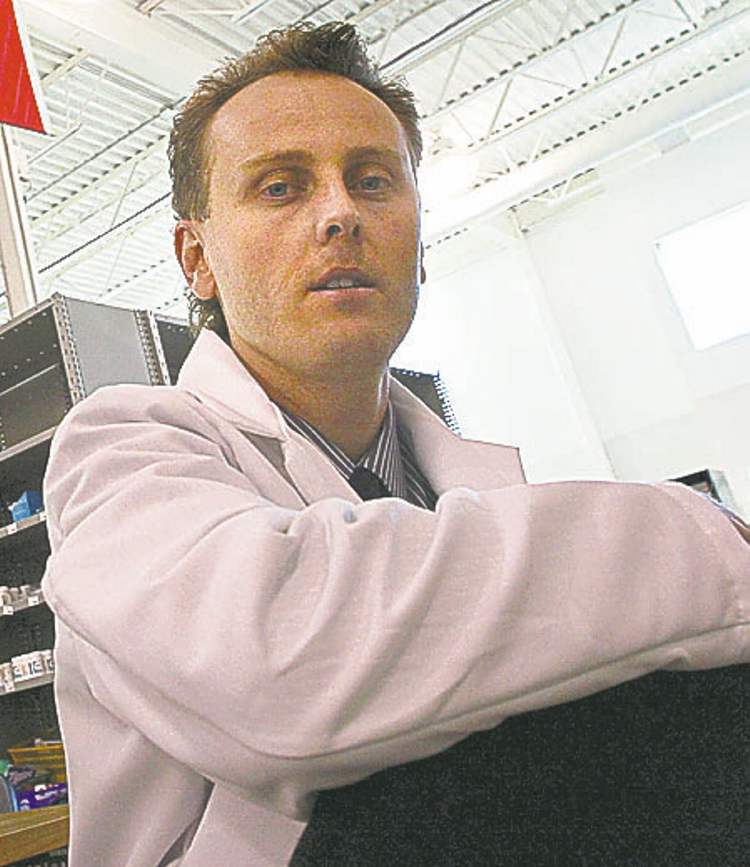
Shiploads of money started to pour in and that always gets a lot of focus. But what every large Internet pharmacist also remembers are the desperate Americans they talked to in those early days. People from the U.S., where almost 45 million people have no health insurance, would break down and cry over the telephone because they couldn’t afford life-saving drugs.
“A lot of seniors say to us, ‘Do I eat, or do I buy my cancer medication?'” Catherine Strempler said in an interview in 2002.
Seniors, with their higher drug needs, have always made up the majority of the market for Internet pharmacies. But there was another key category. “The women with breast cancer were huge” in their emotional desperation to access Canadian prescription drugs, said Jorgenson, whose main Internet pharmacy was canadameds.com at Main Street and Euclid Avenue. A month’s supply of Tomoxifen, a drug for breast cancer treatment, cost $30 in Canada versus $300 to $350 stateside. Another category of desperate buyers were young men with HIV. They required an expensive cocktail of drugs to slow the virus.
The weaker Canadian dollar influenced drug prices but so did Canadian drug pricing controls co-ordinated by the federal agency, Patented Medicine Prices Review Board. It bases Canadian prices on an average of drug prices in G7 countries.
At one point, U.S. President George W. Bush threatened the Canadian government. The big pharmaceutical companies were on Bush’s case. He told Ottawa to legislate an end to the Internet pharmacies or risk losing U.S. trade in beef and lumber. He tossed the problem Ottawa’s way because Bush knew there was no chance he could legislate against Internet pharmacies at home. Try telling American seniors they couldn’t buy Lipitor from Canada anymore. (The price for the cholesterol-fighting drug from MediPlan was US$183 for 90 pills, versus US$269 in the U.S.) The American Association of Retired Persons (AARP), boasting 40 million members, and state-level groups such as the Minnesota State Senior Citizens Association (it used to run busloads of seniors into Manitoba to buy medicines from pharmacist Ken Kronson’s Medi-Mart Pharmacy on Pembina Highway in pre-Internet days) were a powerful political card.
Neither could Bush control state governors who had begun recommending Manitoba’s Internet pharmacies. Government staff from states including Illinois, California, Vermont, New Hampshire, Minnesota, North Dakota, and Wisconsin, all traveled to Winnipeg to visit the pharmacies and ensure there was nothing nefarious about the operations.
In total, 10 states sanctioned the buying of prescription drugs from Canada, and those states bought from the top five or six sellers, all of them based in Manitoba. Governors in Illinois, Minnesota, Wisconsin, Missouri and Kansas even established Internet purchasing sites for their residents. Some states encouraged public employees to buy medications from Canada to save money for themselves and the employee health-care plan. In Springfield, Mass., the civic government ordered prescription drugs directly from Canada for its employee health plan.
The Internet pharmacy industry had to be squeaky clean or lose reputation. So it didn’t sell narcotic drugs or any drug considered to be abusable. The policy was to only fill prescriptions for chronic maintenance medications in 90 day supplies. So they sold drugs for long-term health issues such as cancer, diabetes, cholesterol, hypertension, and high blood pressure.
Physician signatures were always required on a U.S. prescription, which was then converted into a Canadian prescription by having a Canadian doctor review the medical history and “co-sign.” The prescription could then be legally filled in Canada.
Nonetheless, Canadian regulatory agencies, from the Manitoba Pharmaceutical Association, to the Manitoba College of Physicians and Surgeons, to the Canadian Medical Association, began threatening Internet pharmacists and any doctors assisting them. Regulatory bodies argued it was unethical for the co-signing doctor not to have actually examined the U.S. patient, claiming the practice put patients at risk. Under pressure from Bush, Ottawa tried drafting legislation to stop the co-signing practice.
But their argument had more leaks than an email spam filter. Internet pharmacists argued that a co-signing Canadian doctor provided a second set of eyes to confirm prescriptions and to catch dangerous drug interactions, and therefore added a level of safety. And while it was true Canada doesn’t recognize reciprocity for U.S. prescriptions, most states in the U.S. accept a prescription from a Canadian doctor with no co-signing whatsoever. European Union nations also honour prescriptions of other member nation doctors.
As well, there are many situations where prescriptions are given without assessments by a doctor, such as Canada’s far north communities where nursing stations are the last line of health care. After great push back from Internet pharmacists, Ottawa’s efforts to draft legislation failed.
So MediPlan in Minnedosa kept humming along. It grew to 230 employees, including 16 pharmacists. Its sales topped $100 million per year. Strempler became a local hero. He gave countless people in the area jobs who wouldn’t have them otherwise, or else better-paying jobs. Many spouses were now able to provide their families a second income.
Bob Bertram of Minnedosa, who worked at MediPlan as a pharmacist, said the company was a bonanza for the community. “They had their own post office, their own credit-card handling centre. And they were good corporate citizens. They bought uniforms for hockey teams, helped fund the back nine for the golf course,” said Bertram.

“A lot of people ask me if I have anything bad to say about them. I don’t. They brought pharmacists here from across Manitoba. They had two buildings going, and lot of the pharmacists were young guys just graduated and putting in a lot of overtime to pay off their student loans,”
MaryAnn Mihychuk, the provincial minister for industry, trade and mining at the time, said the MediPlan owners in the beginning were “young, fresh, and innovative.”
“I was happy to support them,” she said.
She recalled touring the MediPlan plant in Minnedosa. “When I went there, there were many women in their 50s working there, and they were going, ‘Oh my gosh, this young man (Strempler) is just the best thing that’s ever happened,'” Mihychuk remembered. “He was loved. He brought this optimism into the town.”
In 2003, MediPlan opened a second plant in Niverville, 30 kilometres south of Winnipeg. It was a gleaming 18,000-square-foot office costing $1 million. MediPlan was running out of space in Minnedosa, and, of more concern, running out of population from which to draw workers. The Niverville plant was to employ up to 300 people within three years.
The amount of money to be made in online pharmacies triggered a gold rush. At one time, CIPA counted over 150 pharmacies in Manitoba that were dabbling in cross-border sales of prescription drugs, although not all had their own websites. The Manitoba Pharmaceutical Association says there were 70 online pharmacies it knew about — still an incredibly high number. Most Internet pharmacies were small operators selling by word-of-mouth and some of this selling still exists. But there were about 20 in the province selling on a large scale.
It became so lucrative that even people without pharmaceutical backgrounds opened online pharmacies. Two young Winnipeg entrepreneurs, Glen Voth and Jeremy Charney, looked up an old high school buddy they knew who had gone to pharmacy school. Together, they opened canadamerica.drugs off St. James Street near Polo Park. It employed up to 100 people and would eventually have a facility in Switzerland. Even Phil Kives, founder of K-tel, took a break from selling Veg-o-matics and Miracle Brushes and opened a large online pharmacy. He owned a licensed pharmacy in Winnipeg and was shipping drugs to the U.S. from London.
What kind of cash did Internet pharmacies bring in? It was like a fire hose spraying money across the Manitoba landscape.
At MediPlan, Mark Rzepka and Chantelle Thibodeau Harder earned over $4.5 million together in each of 2003 and 2004, before they divorced in 2005. It was a flat payment out of MediPlan profits. They weren’t 30 years of age yet. Less certain is what they got from the sale of their shares in MediPlan that originally cost $100,000. According to an industry insider, the payout came to $8 million. The four players in MediPlan were believed to be equal partners. The couple cashed out their shares on Mar. 24, 2005, as part of their divorce.
“At first, they were just full of piss and vinegar,” said one person, of Andrew Strempler and Mark Rzepka. “They were playful and fun. They were enjoying the ride.”
The source was one of more than half a dozen people who spoke to the Free Press on the condition of anonymity. These individuals were either once Internet pharmacists or worked with Internet pharmacists. Their reasons for not being identified included the sensitivity of their information, the controversial nature of the business, or simply because they had moved on to other occupations.
But soon the two MediPlan partners, more so Strempler, became unpopular within this new fraternity. Strempler became a “playboy,” the person said. He liked jewelry, from diamond-studded rings to Rolex watches. He had a car park full of luxurious cars, including a yellow Lamborghini with an “Rx Boss” licence plate. There were also two Dodge Vipers, a Jaguar, a red-and-white Pontiac GTO, and a Bentley previously owned by Jennifer Lopez.
He bought Leonard Asper’s 6,500-square-foot home on Wellington Crescent for $2 million and also owned a condo. He like to fire up big Cohibas, a premium brand of Cuban cigar, at the most inappropriate times. “He was a showboat,” said the industry player.
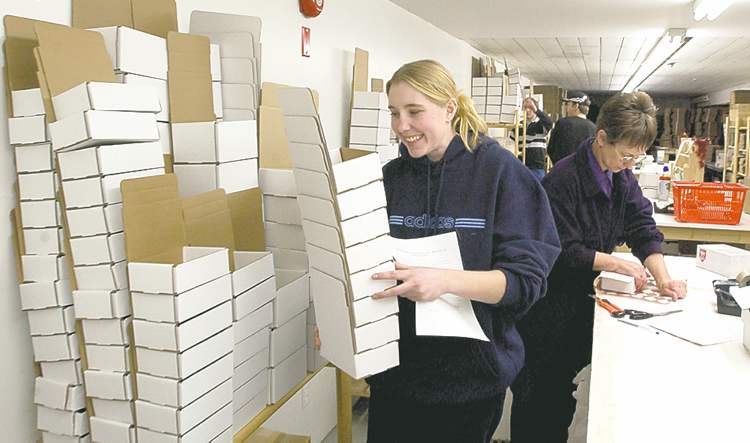
The Rzepkas were less ostentatious but their big buy was a $2-million, 6,800-square-foot home in Pritchard Farm Properties in East St. Paul, that included six bathrooms, a home theatre, and a dance hall.
But for Strempler, it was as if he had no brakes. He would fly regularly by private jet to fly to Las Vegas and play in poker games where a single bet was $5,000. He started to indulge in poker junkets in places such as China. He would fly all over to attend international cigar shows.
Other pharmacists became ticked off. Strempler and Rzepka wouldn’t come to meetings of the Canadian Internet Pharmacy Association, the industry’s umbrella group, and missed weekly CIPA teleconference calls. “They often had a very arrogant, screw-you position,” said a source. Their attitude was one of “because they were first,” he said.
“I think (Strempler) thought he was untouchable,” maintained Jorgenson, former owner of canadameds.com.
Another person who had extensive dealings with Strempler agreed, saying Strempler didn’t seem to think he had to play by the same rules as everyone else. “He had a level of arrogance that I felt uncomfortable with. He lacked humility,” the individual said.
The belief he was bulletproof was Strempler’s flaw, the individual said. “I have absolutely no doubt that that feeling of invincibility was his downfall.”
For people who knew him from an earlier time, this portrait of Strempler seemed like a fiction. Strempler’s parents have been a deacon couple in their Mennonite church. Strempler was part of a young adult church group while attending university. Jay Boschman, an established pharmacist who Strempler worked for briefly in Rossburn before starting MediPlan, once told a reporter that he and Strempler shared their Christian beliefs with one another.
Attempts to give Strempler’s family in Winnipeg an opportunity to speak, conveyed via relatives, were not successful. Rzepka also declined to be interviewed. Neither did Strempler’s Miami lawyer return messages. Winnipeg lawyer Sean Kells, a business partner with Strempler in a non-pharmacy enterprise, did not reply to an interview request.
In a 2005 interview with the New York Times, Strempler’s response sounded strangely principled about his luxurious lifestyle, as if to live otherwise would be false.
“I don’t hide what I enjoy,” he said with a puff on his cigar. “I wouldn’t be able to go through life pretending to be what I’m not.”
At another point in the interview, Strempler revealed how he saw himself. “I would rather be known as a business revolutionary than the man who got rich,” he said.
He added prophetically: “I fully believe we are going to be chased around this globe, and this will not be an easy endeavour.”
He was referring to the changing landscape in his industry. Big pharma was starting to squeeze the drug supply to suspected Internet pharmacies. Pfizer cut off MediPlan in 2004, and Merck did the same in early 2005. It was also around this time that MediPlan closed its Niverville plant. The plant never really got off the ground because drug makers were tightening supplies.
Pharmaceutical giants GlaxoSmithKline, Eli Lilly and AstraZeneca followed suit, stopping the supply of drugs to Canada’s online pharmacies.
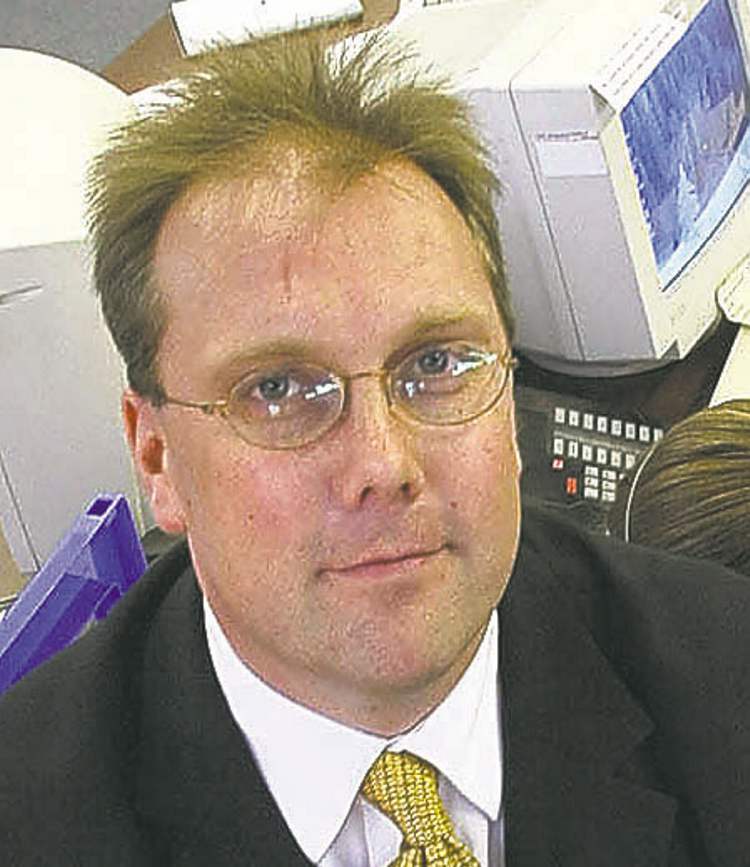
So they turned to other local pharmacies for supplies but were having to pay markups of 15 to 20 per cent. Then big pharma threatened to cut off pharmacies who sold to Internet companies. That started a whole new round in the war. Internet pharmacies started accessing cheaper prescription drugs from around the world, places such as United Kingdom, Australia, New Zealand, Fiji, Greece, Israel, Turkey, India and Syria.
Strempler first moved 35 per cent of his operation to Britain. He also started running a distribution site out of Freeport, Bahamas, taking advantage of its free-trade zone and weaker government oversight. He would access drugs from around the world, have it shipped to a warehouse in Freeport, and fill prescriptions from there. It was the new model.
Jorgenson was vehemently opposed to this process, called trans-shipping. “Andrew was buying drugs from every-effing-where, like on the free trade zone in Hong Kong, the free trade zone in Dubai. It was like buying at a bazaar. There are drugs shipped in from Pakistan and Egypt,” he said.
But there was another very serious problem with Strempler’s operation. Staff were still taking orders in Minnedosa but he was sourcing his drugs abroad and filling the prescriptions in the Bahamas. At the same time, he was slapping on labels that said the drugs were handled by RxNorth in Canada. That is considered fraud. The prescriptions didn’t say the drug had come from Turkey, one of the countries listed in Strempler’s eventual criminal charges.
From the Bahamas, the drugs were shipped to the United Kingdom and Dutch Antilles (Curacao), and then to patients in the U.S. It was cheaper to ship through the U.K. and Dutch Antilles and there was less risk of shipments being seized by U.S. officials. The Food and Drug Adminstration had started seizing some product at points of entry from known Internet pharmacy hot spots.
If Strempler had portrayed or marketed the drugs as they were, not obscuring the country of origin, he would not have been found guilty of fraud. CIPA, the umbrella group, sternly warned its members against this practice, fearing customers would lose confidence in the industry.
Strempler didn’t heed those warnings. In 2006, FDA agents clad in black balaclavas surrounded Strempler’s warehouse in the Bahamas and put locks on the doors. The locks stayed there until all the product expired. Strempler lost $5 million in the seizure. The loss killed his business. But in addition to the seizure, further investigation led to the fraud charges — two counts of mail fraud and one count of conspiracy to commit mail fraud and wire fraud — and he was now wanted on a U.S. federal warrant.
The charges applied to drugs Strempler purchased from Turkey and Australia and misrepresented as coming from Canada.
FDA also discovered counterfeit drugs had infiltrated Strempler’s shipments. It was certainly not his intention. But he likely had become careless and purchased drugs from some sketchy sources. He set up a system for random testing of drugs with a Chicago-based firm but it was like taking a knife to a gun fight. FDA found 90 per cent of the drugs in one Strempler shipment to the U.S. were counterfeit, according to the Wall Street Journal. The shipment contained fake versions of Arimidex, a breast cancer treatment, and Lipitor, the cholesterol drug.
In the end, Strempler was charged with two counts of mail fraud and one count of conspiracy to commit mail fraud and wire fraud, and was now wanted on a U.S. federal warrant. The charges carried a maximum 20-year prison sentence each. The period of investigation was from January, 2005, to June, 2006.
In Strempler’s defence, as someone said, those were “early days” in the industry’s sourcing of drugs from abroad. He mis-stepped in the industry’s transition to a international procurement model.
There is no question Strempler was a maverick. He was accustomed to defying regulatory authorities from Day 1, as were other Internet pharmacists. That’s how the industry started. Strempler received his first warning letter from the FDA in 2001. And ever after, governments and regulatory agencies were trying to shut down the trade. From the perspective of Internet pharmacists such as Strempler, agencies like the FDA and Manitoba Pharmaceutical Association and Manitoba College of Physicians and Surgeons were just trying to preserve the status quo and big pharma’s drug pricing practises. In the bigger picture, the Internet pharmacists were exposing the U.S.’s substandard health care for its poorest people.
So in a pattern of defiance, Strempler defied again.
In 2006, after the FDA seizure of his Bahamas warehouse, and the blocking of his credit, Strempler salvaged what he could and sold his MediPlan patient list to Kris Thorkelson, owner of Canada Drugs Ltd., or its Internet name, canadadrugs.com.
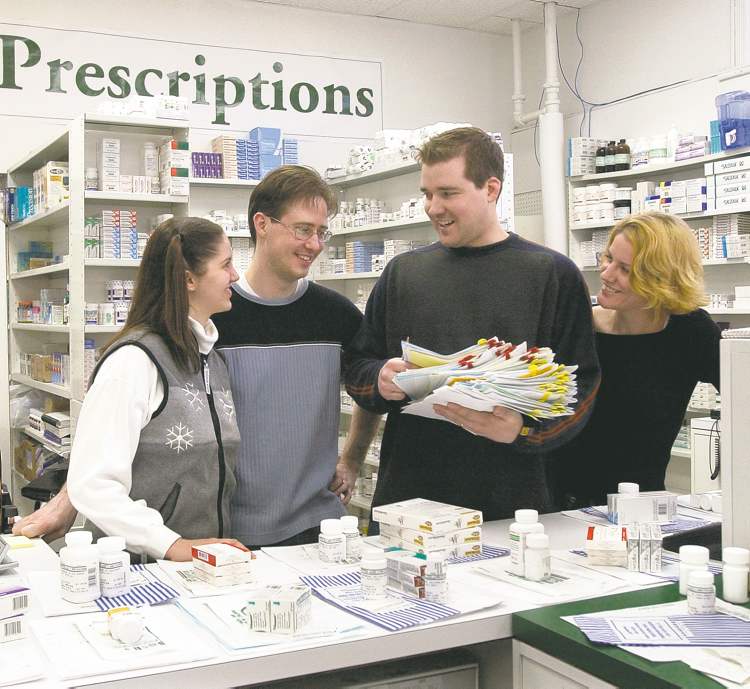
The Manitoba Pharmaceutical Association sought disciplinary action against Strempler, piggybacking on the American fraud charges. Strempler dispensed drugs not approved by Health Canada and sold them to Americans labelled as if they originated in Canada, the MPhA said. It also accused Strempler’s firm of selling prescription drugs that were close to, or past, their expiry date. Strempler eventually agreed in 2010 to strike his name from the provincial pharmacist registry and pay $7,500.
Shortly after 2006, Strempler and his wife moved to Naranja in Panama, where they lived with their two children until recently. Strempler likely chose Panama for a couple reasons. One is its proximity to his new Internet business called PharmCheck, which sold generic drugs in the free-trade zone on the island of Caracao, off the northern shore of Venezuela. Another reason is that Panama is known for its call centres, much like India. So Strempler ran his pharmacy in Curacao and his call centre in Panama City.
In June 2011, Strempler was arrested in a Miami airport and charged on three counts of fraud. He faced a maximum 60 years in prison and was held without bail. In October 2011, Strempler and his lawyer agreed to a plea bargain. Strempler plead guilty and had his original charges reduced to one count of conspiracy to commit mail fraud with a reduced sentence. On Jan. 9, 2013, he was sentenced to four years in prison. Neither does it end there. Big pharma is also seeking $2.6 million in restitution from Strempler.
People have questioned what Strempler was doing in Miami in June 2011 to get himself arrested. After all, he was a wanted man in the United States. It was suicidal to travel to there.
The short story is that Panama deported him to Canada after learning of his outstanding U.S. warrant from Interpol, the intergovernmental police agency. He was then arrested on a stopover in Miami.
But the longer story told to someone who was interviewed by U.S. federal agents is that Strempler was picked up right off the street in Panama by international bounty hunters, sometimes known as ‘fugitive recovery agents.’ He was apprehended right in front of his wife.
The bounty hunters then transported Strempler to the airport in Panama where two U.S. marshalls were waiting off to the side. The bounty hunters informed Panamanian authorities that Strempler was an international fugitive and they wanted to deport him back to Canada. Panamanian officials, not wanting an international controversy, agreed to the deportation. So Strempler was put on a plane to Toronto but with a stopover in Miami.
It would have seemed like a long plane ride. Strempler was seated between the U.S. marshalls. At that point, said the source, Strempler would have known he would not make it back to Canada. He would have known he would be arrested as soon as the plane touched down in Miami. He would have known he was likely headed to prison. And he would have known he would not be seeing his family again for a very long time.
bill.redekop@freepress.mb.ca
NEXT WEEK: Rise and Fall of Internet Pharmacy in Manitoba, Part 2




